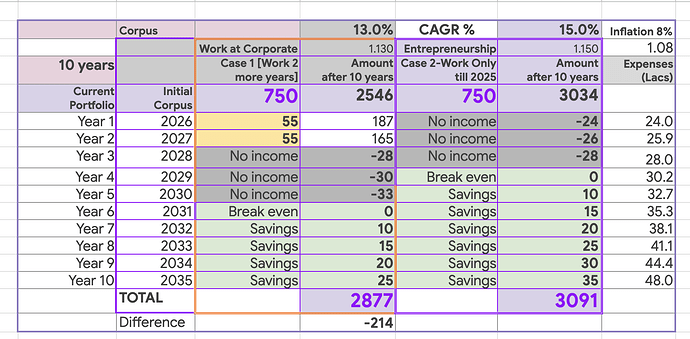That’s a deeply reflective and important question, one I’ve also grappled with during my transition into full-time investing. Personally, I believe that before we try to answer what to do with the wealth, we must first arrive at a state of inner contentment - a self-satisfaction that doesn’t depend solely on the next 20-30-50% CAGR or next crore in the demat.
The beauty of full-time investing is the freedom, not just financial freedom, but the freedom to spend time how we like, think deeply, and align our work with our passion. If we truly enjoy the process of analyzing businesses, studying cycles, and watching wealth compound, then we’re already living a meaningful life and the rising portfolio becomes a by-product of that process.
Yes, increasing lifestyle and enjoying fruits of our success should happen but ideally not to fill a void or prove anything to the world. It should happen organically, driven by genuine desire rather than comparison. A better car, a bigger house, or more travel can definitely be enjoyed if it aligns with what brings joy not stress.
At the same time, I agree money just sitting in the demat account shouldn’t become a vanity score. Beyond a point, compounding money without compounding experiences or contribution can feel hollow. That’s where goals like family well-being, health, travel, supporting causes we believe in, or even creating content/mentorship for others can bring tremendous satisfaction.
So for me, it’s not “either/or”, it’s about creating a life where wealth supports the journey, not dominates it. And enjoying the small things now, not waiting for the perfect NAV.


